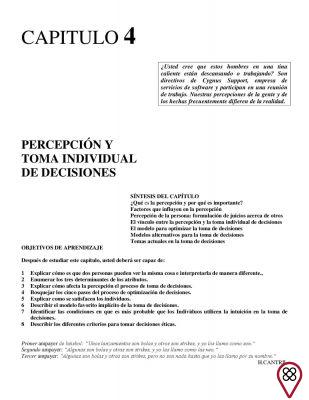“Wow, the traffic was horrible”, “I'll have to cancel it because I have a terrible headache”, “there's nothing wrong, no, I'm fine”... These are just some of the many little lies we've told throughout our days, or even every day.
The truth is that, despite being morally reprehensible or, at least, questionable, lying is, always has been and always will be part of human behavior, according to lying expert Georg Frey, author of the book “I Know You Lie!”. According to him, when we recognize that we lie and that other people lie too, we understand that this is part of human needs.
But how to deal with a person who lies constantly? Is this a disease? How to differentiate an “innocent” lie from a malicious lie? Find out all this now in this article we prepared.
Are there different types of lies?
Yes, they exist. While there is no such thing as legislation that defines degrees of lying or a “police” that punishes liars based on the severity of their lies, there are different types of lies. Several psychologists and scholars of human behavior have made their own separations of types of lies, but let's turn to one made by Georg Frey, in his book "I Know You Lie!". According to him, there are three different types of lies:
• harmless lie: Also known as "excuse", the harmless lie is a non-truth justification that we resort to when we find ourselves in the need to justify a behavior, for example, but it doesn't harm anyone (at least not directly), because it's just about an attempt not to suffer rejection. It's what we do when we blame the traffic instead of assuming we're up late, when we invent an illness to cancel an appointment, or when we create a story to start an affair. Although it is questionable, it is a type of lie that does not have serious or direct consequences at first;

• Offensive lie: this is a lie in the truest sense of the word, that is, an untrue story that we create to deceive someone or to gain an advantage that we would not be able to obtain without this falsehood. The difference from the previous type, although this is quite subjective, is that this type of lie has direct consequences for someone. A person who maintains a relationship but relates to another person without the partner's consent, claiming something false to cut a line, stealing something and pretending not to see it... ;
• Compulsive (or pathological) lying: even though manipulators, selfish people and people with other types of sociopathy, for example, are compulsive liars, their lies are usually told with Machiavellian ends, with bad intentions. It is different here in this case of compulsive/pathological lying because the liar in this situation acts moved almost solely by a need to stand out in relation to others. He doesn't want to harm anyone, even though he sometimes does it unintentionally, he just wants to stand out. Lying that you know or met someone famous, that you went to a place or took a trip that you didn't, that you practice activities that you don't practice or that you have had experiences that are not true at all are some examples of this. You know the famous “bringing about”? It's like that, but the "advantage counted" is not true.
What is pathological lying?
Also known as compulsion to lie, mythomania or fantastic pseudology, pathological lying is a psychological disorder characterized, in short, by compulsively telling lies with no external benefits, commonly practiced so that the one who is telling lies is better seen. socially. Unlike manipulators or psychopaths, for example, who lie to take advantage of people who hear their lies, people who suffer from mythomania rarely harm other people, as they just want to be better evaluated.
It is important to say that the person who suffers from mythomania does not tell lies because he chooses to tell and rarely premeditates the false stories he will tell. She often lies without even being aware of the act while she is practicing and also often "improvise" lies according to the subject being discussed, which makes it difficult for her to remember the lies told, causing discomfort among her peers. known.
What can cause or trigger pathological lying in someone?
In almost all cases, mythomaniacs are not born with this disease, which is acquired throughout their lives, as they deal, throughout their maturation process, with the need to build a social image of themselves and validate this image. . A person who wants to be seen, for example, as an expert when it comes to travel, may find himself reporting trips he has never taken just to report false experiences and be well evaluated by his interlocutors.
Like most psychological disorders, mythomania is not something that has an exact origin or cause, because each human being has a unique experience throughout his life, so, although the most common among mythomaniacs is lying solely for the purpose of to be admired, it is possible that other triggers trigger this problem, such as trauma, need to escape from reality, among other reasons.

It is common for mythomania to present in individuals who have other psychological disorders, such as depression, anxiety disorder, and obsessive-compulsive disorder (OCD). As explained above, each case is individual, but the disorders mentioned above can lead a person to a state of such great anguish that lying becomes an escape or escape valve for their psychologically negative and exhausting situation. In addition, as people with these types of disorders know they are experiencing problems, they are afraid of being judged weak or "lesser" than other people, hence the need to resort to mythomania to falsify a non-existent greatness.
How to identify and deal with a pathological liar?
How to differentiate someone who lives or has lived what he reported and someone who is lying? Some common symptoms among mythomaniacs can help us identify that we are facing a person who suffers from this disease:
• It is likely that everyone, at one time or another, has lied or exaggerated some story to be admired by other people. And not everyone, of course, is a mythomaniac. The difference is that the mythomaniac maintains this tendency to tell lies for a long time, that is, it is not a necessity provoked by a subject or an immediate situation, but something that she resorts to with some frequency;
• Mythomaniacs' lies are not completely detached from reality, so they always find some “ground of truth” or a “root” that helps make it believable. Let's suppose that the mythomaniac has taken a trip to Rio de Janeiro and lives in São Paulo. When he returns to São Paulo, he tells his friends that he met a famous soccer player in Copacabana and spent the night drinking with him. The lie has a “root” in the truth: he really was in Rio de Janeiro, but then we have the improbability: the meeting with the athlete;

• The best way to unmask a liar is still to ask specific details of the story. If asked what bar the player was in, what drinks were consumed, what car the player had, what time they left, etc., the mythomaniac is likely to get nervous and contradict himself. Asking for proof always works too: a photo, a souvenir, something like that;
• When unmasked, the mythomaniac usually recognizes the lie and feels ashamed for it. He will justify his lie with another lie or by pretending it was all a joke, but he has probably told many others and will come back to tell even more...
• The mythomaniac's lies often place him favorably on the stories he tells. He will hardly create false situations about himself that diminish or expose him. As he lies to be admired, his stories often highlight qualities such as courage, intelligence, happiness or even something that seems simple but, in his mind, would make him admired, such as reporting an experience that no one has had and probably won't.
Is there treatment for pathological lying? And cure?
The most efficient treatment for mythomania is psychological and, eventually, psychiatric follow-up. As we have seen, mythomania is usually a symptom of a bigger problem, such as depression, or a negative self-assessment, such as low self-esteem or low self-confidence, which leads the person to try to aggrandize himself publicly, so the treatment is to treat the problem that causes the mythomaniac to lie.
The professional best prepared to identify why the mythomaniac lies is a psychologist, who will, above all, help the mythomaniac himself to see his problem, why it happens and how it is possible to treat it. This process of accepting the problem is one of the most fundamental in the treatment of compulsive lying, according to experts on the subject, because it is a very painful process to recognize that you have been telling lies indiscriminately at the same time and that you have not been honest and truthful with the Dear people.
You may also like
- The Spirit of Lies: Know This Human Mechanism!
- Find out how to recognize and treat a manipulator!
- Pay attention to the 5 lies we tell so you don't get out of your comfort zone!
- How to treat anxiety naturally and without medication
- You can do the technique(s) for psychological and energetic transformations in the right measure for your moment.
In addition, psychological and psychiatric treatment is important to distinguish mythomania from other more serious disorders that lead to lies, such as schizophrenia, delusions, psychoses of various types, paranoia or megalomania, which are problems that make the patient have a distorted view of reality, which is different from the mythomaniac, who is so aware of reality that he tells a lie in the belief that it will make him stand out.
Mythomania, in short, is a perfectly curable disorder. If you suspect that you are suffering from this problem, you will probably be embarrassed to talk about it with a friend, so it is best to look for a psychology professional, who will help you without judging you. If you notice that someone you know suffers from this problem, avoid exposing that person publicly and “unmasking” their lies in public, because it is precisely the shame of being “less” that they are running away from. If possible, talk to the mythomaniac privately and recommend that he recognize the problem and seek appropriate treatment.
Compulsive lying, also known as mythomania, is a problem usually caused by other psychological disorders, such as depression and anxiety, or by distortions in self-image, such as low self-esteem and low self-confidence. It is a problem that can greatly affect one's social relationships, but it can be successfully treated with psychological or psychiatric follow-up.

























